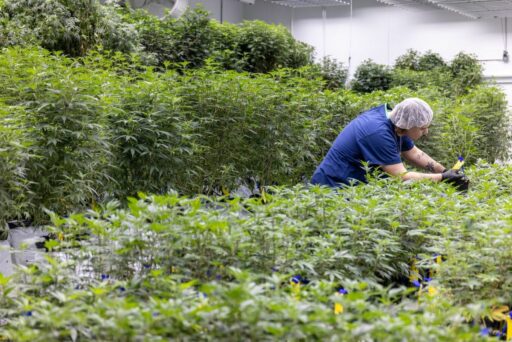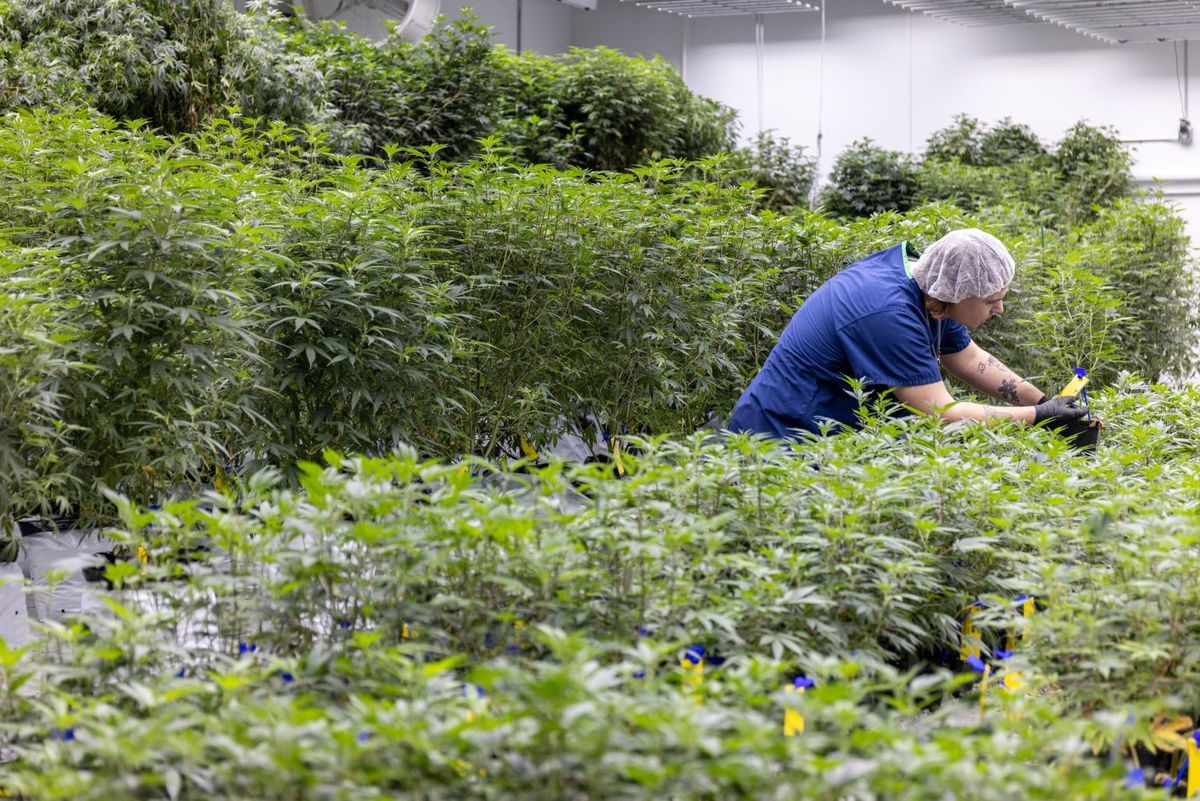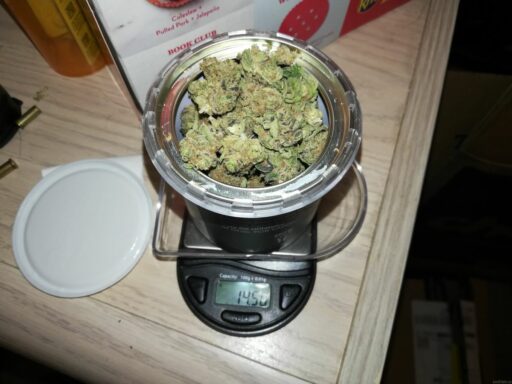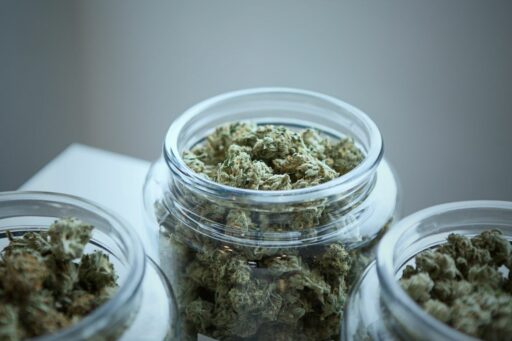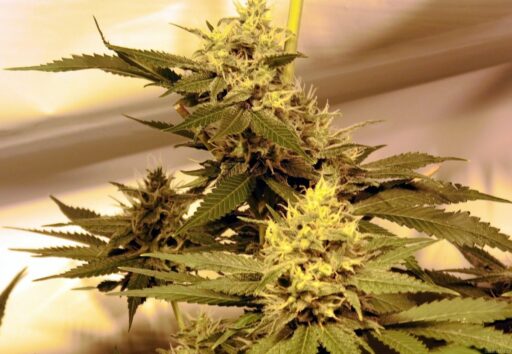As of 2023, the legal landscape for marijuana in Louisiana remains complex and nuanced. With medical marijuana being legal under certain regulations, and attempts at legalizing recreational use facing setbacks, understanding the current laws is essential for residents and visitors alike. This guide provides a comprehensive overview of the cannabis laws in Louisiana, including the medical marijuana program, interactions with other laws, political attitudes, and future prospects for legalization.
Key Takeaways
- Medical marijuana is legal in Louisiana, but recreational use remains illegal with recent legislative attempts failing.
- Louisiana does not recognize out-of-state MMJ cards, and public consumption is prohibited.
- Workplace protections exist for MMJ patients, preventing discrimination based on positive drug tests for cannabis.
- Political and public opinion are shifting, with advocacy groups playing a significant role in pushing for reform.
- The future of cannabis laws in Louisiana may see further expansion of the medical program and potential pathways to recreational legalization.
Understanding the Current Legal Status of Marijuana in Louisiana

Medical Marijuana: Regulations and Accessibility
In Louisiana, medical marijuana is available to patients with qualifying conditions, marking a significant shift in the state’s approach to cannabis. Medical marijuana became accessible after the state established a regulated program, which includes a network of licensed dispensaries and healthcare professionals authorized to recommend cannabis for therapeutic use.
Patients seeking access to medical marijuana must navigate a series of steps to become eligible. These include obtaining a recommendation from a licensed physician, applying for a medical marijuana card, and adhering to the state’s specific consumption guidelines.
The evolution of Louisiana’s medical marijuana program reflects a broader trend towards recognizing the therapeutic potential of cannabis, despite the ongoing federal prohibition.
Louisiana’s medical marijuana program is designed to ensure patient safety and product quality. The state has implemented strict regulations governing the cultivation, distribution, and sale of medical cannabis. As the program matures, patients can expect improvements in accessibility and possibly an expansion of qualifying conditions.
Recreational Use: Legal Attempts and Setbacks
Despite the shifting landscape of cannabis laws across the United States, Louisiana’s journey towards legalizing recreational marijuana has faced significant obstacles. Efforts to establish a legal market for recreational cannabis have encountered a series of legal and political challenges. For instance, while legislation has been introduced to legalize recreational use, it has repeatedly stalled in the state government, leaving no legal avenue for the purchase of cannabis.
The absence of a legal marketplace creates a paradoxical situation where marijuana is decriminalized to an extent but not fully legal, leading to a confusing legal gray area for consumers and law enforcement alike.
In other states, similar patterns emerge. Virginia’s plan to commence recreational sales by January 1, 2024, has been impeded by gubernatorial opposition and legislative hurdles. This exemplifies the complex and often slow-moving process of cannabis legalization, which can be fraught with delays in licensing and regulatory approvals, impacting the availability of legal cannabis.
Possession Limits and Criminal Penalties
In Louisiana, the legal landscape surrounding marijuana possession is nuanced, with penalties varying based on quantity and intent. Possession of up to 14 grams, or just under half an ounce, is decriminalized, resulting in a civil fine rather than criminal charges. However, the law takes a sharper turn for quantities exceeding this limit.
For those caught with more than half an ounce but less than 2.5 pounds, the consequences escalate to potential jail time. Possession of over 2.5 pounds is classified as a felony, carrying a mandatory minimum sentence. Cultivation or distribution of any amount is also a felony, with significant fines and mandatory prison time.
The intent behind possession is a critical factor in determining penalties. Simple possession for personal use is treated more leniently than possession with intent to distribute, which can lead to harsher legal repercussions.
Public use of cannabis, possession on school grounds, or in a vehicle, and any form of distribution outside the medical program remain illegal. The state also prohibits ‘open container’ cannabis in vehicles and public sharing or offering of cannabis.
Workplace Protections for MMJ Patients
In 2022, Louisiana took significant steps to protect medical marijuana (MMJ) patients in the workplace. Employees registered as MMJ patients cannot be discriminated against based solely on a positive drug test for cannabis. This is a pivotal development for MMJ patients who require medication but also seek to maintain their employment without fear of unjust repercussions.
The new laws reflect a growing recognition of the legitimacy of medical marijuana as a treatment option and the need to safeguard patients’ rights in all aspects of life, including their professional environments.
While these protections are in place, it’s important for MMJ patients to understand the specifics of their rights and any limitations that may apply. For instance, consumption of cannabis is still illegal in public places, and usage must be confined to private residences. Additionally, the state does not recognize MMJ cards from other states, limiting legal protection and access to Louisiana residents only.
Recent Legislative Changes and Their Impact
In recent years, Louisiana has seen a series of legislative changes that have significantly impacted the legal landscape of marijuana use and taxation. The most notable change is the implementation of a taxation system for medical marijuana, which aligns with broader trends in cannabis taxation across the United States.
- In 2023, Louisiana introduced new tax policies affecting medical marijuana sales.
- These changes are part of a nationwide shift towards the legalization and taxation of marijuana.
The taxation of medical marijuana is expected to generate additional revenue for the state, which could be allocated to various public services and infrastructure projects.
While the economic implications are promising, patients and businesses are adapting to the new tax structures. The long-term effects of these legislative changes on the medical marijuana industry and Louisiana’s economy remain to be seen.
Navigating the Medical Marijuana Program in Louisiana

The Process of Obtaining a Medical Marijuana Card
In Louisiana, the journey to obtaining a medical marijuana card begins with a medical marijuana recommendation from a licensed cannabis doctor. This crucial step ensures that only qualifying patients receive access to medical cannabis.
To qualify, patients must present medical records to the consulting physician, demonstrating they have a condition deemed eligible under state law. The recent expansion of the program allows for any condition to be considered if the physician believes it to be debilitating and is within their expertise to treat.
The consultation is typically a brief but essential meeting where the doctor assesses your condition and answers any questions about the use of medical marijuana.
Once the recommendation is secured, patients can proceed with the application process, which may involve additional steps such as registering with the state and providing identification.
Qualifying Conditions for MMJ Patients
In Louisiana, the eligibility for a medical marijuana card is determined by a specific list of qualifying conditions. Patients suffering from serious ailments such as Cancer, HIV/AIDS, and Epilepsy are among those who can seek relief through the state’s medical marijuana program. Additionally, conditions like Multiple Sclerosis, Parkinson’s disease, and PTSD are also included, providing a broad spectrum of patients with the potential for therapeutic benefits.
The program has been designed to be inclusive, allowing physicians to recommend medical marijuana for any condition they deem debilitating, based on their medical judgment and expertise. This flexibility ensures that patients with various health challenges have the opportunity to discuss the potential benefits of medical marijuana with their healthcare providers.
The process of obtaining a medical marijuana card involves a consultation with a qualified physician, who will evaluate your medical history and current condition. It’s essential to come prepared with your medical records and a state-issued photo ID. The consultation typically lasts around 15 minutes, during which you can address any questions regarding the use of medical marijuana for your condition.
Consumption Guidelines and Restrictions
In Louisiana, the consumption of medical marijuana is subject to strict guidelines and restrictions to ensure safety and compliance with state laws. Consumption of cannabis in any form is prohibited on school grounds, in motor vehicles, and in public spaces. Additionally, the state enforces an ‘open container’ rule, making it illegal to have an open container of cannabis in a vehicle.
- Possession on school grounds or school bus
- Consumption in a motor vehicle (passenger or driver)
- Open container in a vehicle
- Sharing or offering in public
- Selling or purchasing cannabis outside the medical program
- Gifting schemes (e.g., gift with purchase, public giveaways)
It is crucial for patients to adhere to these regulations to avoid legal repercussions and to maintain the integrity of the medical marijuana program in Louisiana. Cultivation of cannabis is permitted under certain conditions, with a limit of four plants per household and specific requirements for plant tagging and visibility.
Patients and caregivers must be aware of these guidelines to ensure they remain within the legal framework established by the state. Violations can lead to significant penalties, including fines and potential loss of MMJ patient privileges.
Caregiver Rules and Responsibilities
In Louisiana, the role of a caregiver in the medical marijuana program is tightly regulated. Caregivers are authorized to purchase cannabis on behalf of minors diagnosed with an autism spectrum disorder. To qualify as a caregiver, one must meet specific criteria: being the patient’s parent or legal guardian, holding Louisiana residency, and being 21 years of age or older.
If a caregiver or patient misplaces their certification of recommendation, they can contact their physician for a replacement, typically without an additional fee. This ensures continuous access to necessary medical cannabis without undue burden.
Caregivers play a crucial role in maintaining the well-being of MMJ patients, especially minors. Their responsibilities are not only to procure cannabis but also to ensure its safe and appropriate use.
Caregivers should also be aware of the cultivation rules, which are applicable if they are growing cannabis for medical use. These include a limit of four plants per household, cultivation only at the primary residence, and specific tagging and visibility requirements to ensure compliance with state regulations.
Pharmacy Access and Future Expansion Plans
In Louisiana, the Board of Pharmacy has authorized expansion for medical marijuana dispensaries, reflecting a commitment to improving patient access. Currently, nine pharmacies are operational, with a tenth license granted by Governor Edwards through the amended House Bill 697, targeting the most densely populated region.
Each pharmacy may establish two additional satellite dispensaries in their service area upon reaching 3,500 registered patients. This milestone has already been achieved by several locations, indicating a growing patient base and the potential for further expansion.
The expansion plans are set to significantly enhance the accessibility of medical marijuana for qualifying patients across Louisiana.
Here is a list of the existing pharmacies and their respective regions:
- Willow Pharmacy: Madisonville (Southeast)
- Hope Pharmacy: Shreveport (Northwest)
- H&W Drug Store: New Orleans (Metropolitan)
- Medicis: Lake Charles (Southwest)
- Green Leaf Dispensary: Houma (Teche)
- Capitol Wellness Solutions: Baton Rouge (Capitol)
- Delta Medmar: West Monroe (Northeast)
- The Apothecary Shoppe: Lafayette (Acadian)
- The Medicine Cabinet Pharmacy: Alexandria (Central)
The strategic placement of these dispensaries, along with the planned openings of additional sites, aims to ensure that medical marijuana is within reach for patients throughout the state.
Interactions with Other Laws and Policies

Medical Marijuana and Gun Ownership
In Louisiana, the intersection of medical marijuana (MMJ) use and gun ownership presents a complex legal challenge. Federal law prohibits MMJ patients from purchasing or possessing firearms, as marijuana remains a Schedule I controlled substance at the federal level. This federal stance conflicts with Louisiana’s state laws, where medical marijuana is legal for qualifying patients.
- Federal law: Prohibits firearm possession for MMJ users
- Louisiana law: Allows medical marijuana with certain conditions
The tension between state and federal regulations creates a precarious situation for MMJ patients who are also gun owners or prospective gun owners in Louisiana.
Louisiana residents must navigate this dichotomy carefully, as adherence to state MMJ laws does not exempt individuals from federal enforcement. The legal landscape may evolve, and MMJ patients are advised to stay informed about changes that could affect their rights.
Implications for Out-of-State MMJ Cardholders
Louisiana’s stance on out-of-state medical marijuana (MMJ) cardholders is clear: there is no reciprocity program, meaning non-residents cannot purchase cannabis within the state using an out-of-state MMJ card. However, a notable provision exists in House Bill 137, which offers a degree of legal protection.
House Bill 137 provides immunity from criminal prosecution for out-of-state MMJ cardholders, although it does not permit them to buy or use cannabis in Louisiana.
For those considering travel to Louisiana, it’s important to understand these restrictions to avoid legal complications. Here’s a quick rundown of what out-of-state MMJ cardholders need to know:
- Consumption of cannabis is only legal in a private residence.
- Out-of-state MMJ cardholders are not allowed to purchase cannabis in Louisiana.
- House Bill 137 grants immunity from criminal prosecution but does not allow use or purchase.
While resources like MMJ.com offer guidance on medical marijuana, they emphasize the importance of adhering to state-specific regulations. For Louisiana, this means recognizing the state’s limitations on out-of-state MMJ cardholders and planning accordingly.
Employment and Drug Testing Laws
In Louisiana, employers have the discretion to implement drug testing policies that align with their business needs, provided they comply with state and federal regulations. The state’s drug testing laws offer flexibility, allowing for voluntary drug testing with employee consent. This means that while employers can choose to test, employees have the right to be informed and consent to the procedure.
Employers must also consider the rights of medical marijuana patients. Although Louisiana law does not explicitly protect MMJ patients in the workplace, employers are encouraged to evaluate their drug testing policies to avoid discrimination against those legally using cannabis for medical purposes.
It is essential for both employers and employees to understand their rights and responsibilities when it comes to drug testing in the workplace, especially as the legal landscape around cannabis continues to evolve.
Impact on Marginalized Communities
The intersection of cannabis laws and social equity is a pressing issue in Louisiana. Social equity programs aim to rectify the disproportionate impact that past cannabis prohibitions have had on marginalized communities. These programs often include measures such as expungement of records, priority licensing, and support for business ownership in the cannabis industry.
While the state has made some strides in addressing these concerns, the effectiveness of these initiatives is still under scrutiny. The goal is to ensure that those who have been historically penalized by cannabis laws are not left behind in the legal market. However, the path to achieving this is complex and requires continuous legislative attention and community advocacy.
The challenge lies in creating a fair and inclusive framework that not only acknowledges past injustices but actively works towards repairing them.
Louisiana’s approach to social equity in cannabis legislation is evolving, with the hope that future reforms will further advance the cause of justice and equal opportunity in the industry.
Driving Under the Influence of Cannabis
In Louisiana, driving under the influence of cannabis is a serious offense, reflecting the state’s stringent approach to cannabis-related activities. It is illegal to operate a motor vehicle while impaired by any substance, including marijuana, regardless of its legal status for medical use. The consequences for driving under the influence can be severe, including fines, license suspension, and even imprisonment.
- Possession or consumption by anyone under 21
- Possession on school grounds or school bus
- Consumption in a motor vehicle (passenger or driver)
- “Open container” in a vehicle
It’s crucial for individuals to understand that the presence of cannabis in one’s system while driving can lead to significant legal repercussions. Louisiana remains among the states with some of the strictest cannabis DUI laws, and the penalties reflect this stance.
The state does not currently have a set legal limit for THC in the bloodstream while driving, as is the case with alcohol. Instead, law enforcement officers rely on field sobriety tests and other observations to determine impairment. If you are a medical marijuana patient, it is advisable to wait at least one hour after use before driving or operating heavy machinery to avoid the risk of DUI charges.
Political Landscape and Public Opinion
State Officials and Candidates’ Stance on Marijuana Policy
The political climate in Louisiana has seen a variety of stances on marijuana policy among state officials and candidates. Public opinion has often been at odds with legislative action, reflecting a complex landscape of support and opposition. The positions taken by these figures can significantly influence the direction of marijuana legislation and its implementation.
- Louisiana State Legislature has been pivotal in shaping the state’s marijuana laws, including the issuance of specialty licenses for marijuana production.
- Candidates for state offices have publicly expressed their views on marijuana policy, which are crucial for voters to understand before heading to the polls.
- Advocacy groups have released voter guides to help inform the public about candidates’ positions on marijuana reform.
The evolving views and policies of state officials and candidates will continue to shape Louisiana’s approach to marijuana legislation, making it essential for constituents to stay informed and engaged.
Public Sentiment and Voter Guides
In Louisiana, public sentiment towards marijuana laws has been a driving force behind various ballot initiatives and legislative efforts. The Marijuana Policy Project‘s release of a voter guide ahead of Louisiana’s open primary signals a growing interest in cannabis policy among voters. This guide, along with others from organizations like the Louisiana Cannabis Law Society at LSU’s Paul M. Hebert Law Center, provides citizens with crucial information on candidates’ stances and legislative proposals concerning marijuana.
Voter guides and election results have historically played a pivotal role in shaping the state’s approach to cannabis legislation. For instance, ballot measures related to cannabis taxation and legalization have been closely watched on Election Day, reflecting the electorate’s evolving views. The following list highlights some key ballot initiatives and their outcomes:
- Income tax changes with implications for cannabis revenue
- Cannabis legalization and taxation measures
- Property and cannabis tax changes in Colorado, with potential lessons for Louisiana
The engagement of Louisiana’s electorate in cannabis-related ballot measures and the dissemination of voter guides are indicative of a more informed and active citizenry on this issue.
Advocacy Groups and Their Role in Reform
In Louisiana, the push for cannabis law reform is significantly influenced by advocacy groups. These organizations work tirelessly to educate the public, lobby for policy changes, and support individuals affected by current laws. One such group making a notable impact is the Last Prisoner Project. Their multifaceted approach includes advocacy for policy change, education, and support for individuals through release, commutation, expungement, and reentry programs.
Advocacy groups in Louisiana play a critical role in shaping the conversation around cannabis reform. Their efforts are not only focused on changing laws but also on addressing the social justice aspects of cannabis-related convictions.
The activities of these groups often include organizing events, creating voter guides, and providing resources to help individuals understand their rights and the current legal landscape. Below is a list of common initiatives undertaken by advocacy groups:
- Public education campaigns
- Legal assistance for those affected by cannabis laws
- Support for legislative bills favoring reform
- Community outreach and engagement
- Research and policy analysis
The Debate Over Full Legalization
The debate over the full legalization of marijuana in Louisiana is a complex and multifaceted issue. Louisiana’s decision to hold off on legalizing recreational marijuana reflects a cautious and deliberate approach rooted in cultural, regulatory, and public health considerations. While some states like Virginia and New Hampshire are making legislative progress, Louisiana remains hesitant.
Proponents of legalization argue that it would lead to economic benefits, increased tax revenue, and reduced law enforcement costs. Opponents, however, raise concerns about public safety and the potential for increased access by minors.
The discussion in Louisiana is not just about the pros and cons of legalization but also about finding the right balance between individual freedoms and community health.
Here’s a look at the key points in the debate:
- Economic implications of a legal cannabis market
- Public health concerns and youth access
- The impact on law enforcement and the judicial system
- Cultural attitudes towards cannabis use
- Comparison with other states’ experiences and legislation
Educational Efforts and Community Outreach
In Louisiana, the push for cannabis law reform is accompanied by significant educational efforts and community outreach. These initiatives aim to inform the public about the benefits and regulations of medical marijuana, as well as to destigmatize its use. Organizations like ILERA Holistic Healthcare and SUAG Center play a pivotal role in this educational landscape.
Key services provided by these organizations include:
- Operational Readiness
- Education and Training
- Cannabis Branding & Marketing
The focus on education extends beyond patients to include businesses and government entities, ensuring a comprehensive understanding of cannabis operations and compliance.
With the expansion of medical marijuana laws, there’s a growing need for accurate information dissemination. The efforts of these organizations are crucial in shaping a well-informed community that can make educated decisions regarding cannabis use and legislation.
Looking Ahead: The Future of Cannabis Laws in Louisiana

Potential Pathways to Recreational Legalization
The legalization of recreational marijuana in Louisiana remains a complex issue, with multiple bills introduced to establish a regulated and taxed cannabis market. The state has yet to join the ranks of those where recreational use is legal, but the momentum is building.
- Legislative efforts have focused on creating a framework for taxation and regulation, drawing from the experiences of other states.
- Voter initiatives could also play a role, as seen in other regions where ballot measures have successfully passed.
- Economic incentives, such as the potential for new revenue streams, are driving serious discussions among policymakers.
The path to legalization is not straightforward, and it involves careful consideration of various factors, including public health, safety, and economic impact.
While the outcome is uncertain, the ongoing dialogue suggests that Louisiana may see changes to its cannabis laws in the near future. The process will likely involve extensive debate and revisions to ensure that any transition to a legal recreational market is done responsibly.
Expungement of Past Marijuana Convictions
The path to expungement of past marijuana convictions is a critical component of cannabis law reform. In Louisiana, efforts are underway to provide relief to individuals with previous marijuana-related offenses. This process is not only a matter of legal justice but also one of social equity, as it can significantly impact a person’s employment, housing, and educational opportunities.
The expungement process typically involves several steps, including petitioning the court, which can be complex and time-consuming. However, the benefits of having a conviction removed from one’s record are substantial, offering a fresh start to many.
While the specifics of the expungement legislation are still being shaped, the intent is clear: to rectify the consequences of past marijuana policies that disproportionately affected marginalized communities. As the legal landscape evolves, those with prior convictions are encouraged to stay informed and seek legal assistance where necessary.
Research and Development in Cannabis Medicine
In Louisiana, the landscape of marijuana research is evolving, with a focus on understanding its therapeutic potential and safety profile. The year 2023 has seen a surge in studies, ranging from usage trends to medical applications, reflecting a broader national interest in cannabis science.
- The Healing Clinics have been at the forefront, exploring a variety of research topics.
- Government and private entities are increasingly funding these studies, indicating a shift towards more evidence-based understanding of cannabis.
The importance of ensuring that medical marijuana is both safe and accessible cannot be overstated. This is particularly crucial for patients who depend on cannabis for medical reasons.
As the industry grows, so does the need for rigorous testing and quality control. The Drug Abuse Testing Market report projects significant growth by 2030, with cannabis being a key substance of focus. This growth is indicative of the increasing demand for reliable data on cannabis effects and safety.
Economic Implications of Legal Changes
The economic implications of legal changes to marijuana laws in Louisiana could be substantial. From tax revenue to job creation, the potential financial benefits of legalizing recreational marijuana are significant. The state could see an influx of new businesses and increased tourism, as has been the case in other states that have moved towards legalization.
- Tax Revenue: Legalization could lead to a considerable increase in state revenue from sales taxes and licensing fees.
- Job Creation: A new legal market would create jobs in cultivation, distribution, retail, and regulation.
- Business Growth: Existing businesses could expand, and new enterprises could emerge, contributing to economic diversification.
- Tourism Boost: Legalization may attract visitors interested in cannabis tourism, similar to trends seen in Colorado and California.
The ripple effects of legalization extend beyond direct financial gains. The broader economic impact includes support for ancillary businesses, such as legal services, security, and marketing, which all stand to benefit from a burgeoning cannabis industry.
Anticipated Challenges and Opportunities
As Louisiana looks to the future of cannabis laws, stakeholders are weighing both the challenges and opportunities that may arise. The evolving political climate and public opinion will play critical roles in shaping the state’s approach to marijuana legislation. Recent statewide ballots have shown a trend towards liberalizing cannabis laws, with measures addressing issues such as recreational marijuana use gaining traction.
Anticipated challenges include navigating federal-state legal discrepancies, ensuring equitable access across communities, and addressing concerns from opposition groups. On the other hand, opportunities are emerging in areas like economic development, criminal justice reform, and healthcare innovation.
The balance between regulation and freedom, public health and individual rights, will continue to be a delicate one for Louisiana to manage.
Looking at the broader picture, the state must consider how to integrate cannabis laws with other policies, such as employment and drug testing, and how to support those disproportionately affected by past legislation. The journey ahead is complex, but with careful planning and community engagement, Louisiana can craft a cannabis policy that reflects the will of its people and the demands of the times.
Conclusion
Navigating the cannabis laws in Louisiana can be complex, but understanding the current legal framework is essential for residents and visitors alike. As of 2023, Louisiana has made significant strides in its medical marijuana program, allowing for the use of medical cannabis under specific conditions. However, the state has yet to legalize recreational marijuana, with recent attempts such as House Bill 24 failing to pass. It’s important for individuals to stay informed about the legal implications of cannabis use in Louisiana, including the necessity of obtaining an MMJ certification to avoid legal repercussions. While the state has shown progress by enacting pro-marijuana laws and expanding the number of licensed pharmacies, the full legalization of marijuana remains uncertain. For those seeking to use cannabis legally in Louisiana, adhering to the current medical marijuana guidelines is the safest course of action.
Frequently Asked Questions
Is marijuana legal for recreational use in Louisiana as of 2023?
No, recreational use of marijuana remains illegal in Louisiana. An attempt to legalize it through House Bill 24 failed in April 2023.
When did medical marijuana become legal in Louisiana?
Medical marijuana became legal in Louisiana on June 30, 2015, when Governor Bobby Jindal signed SB 143, setting the framework for the state’s medical marijuana program.
Can medical marijuana patients in Louisiana be discriminated against in the workplace for testing positive for cannabis?
No, as of the pro-marijuana laws passed in 2022, employees registered as MMJ patients cannot be discriminated against solely based on a positive drug test for cannabis.
Are out-of-state medical marijuana cards recognized in Louisiana?
No, Louisiana does not have a reciprocity program for medical marijuana cards. However, House Bill 137 provides immunity from criminal prosecution for out-of-state MMJ cardholders.
What are the possession limits for medical marijuana in Louisiana?
The possession limits for medical marijuana in Louisiana are not specified in the provided information. Patients should consult the current state laws or a legal expert for the most accurate and up-to-date information.
Can you grow your own marijuana in Louisiana if you have a medical marijuana card?
No, personal cultivation of marijuana is not allowed in Louisiana, even for medical marijuana cardholders, and there are no immediate plans to change this policy.
